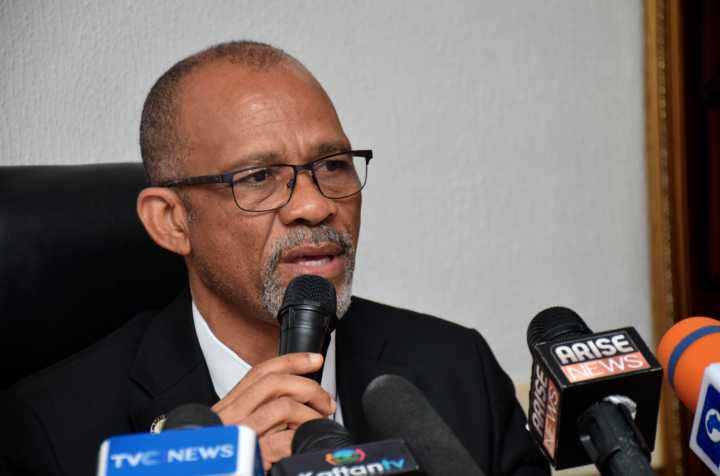Akin Abayomi, Lagos commissioner for health, says recent data shows that 95 out of every 100 cases of fever in the state are not caused by malaria.
Speaking on Saturday during a three-day programme titled ‘Pathway to pre-elimination and digitisation project’, Abayomi said the finding is critical in tackling misdiagnosis and curbing the rising threat of antimicrobial resistance (AMR).
The study, he said, focused on the comparative effectiveness of malaria rapid diagnostic tests (RDTs), microscopy, and the capacity of private providers to manage malaria and other febrile illnesses.
“We need to get malaria out of the region. It is very important that we do that once and for all and perform a mind shift in our healthcare providers,” Abayomi said.
Advertisement
“On average, 95 out of every 100 fevers that you may see are not caused by malaria.”
The commissioner decried the long-standing culture of treating fever as malaria without proper diagnosis, warning that it fuels the misuse of antimalarials and antibiotics, which accelerates antimicrobial resistance — a condition where common infections become harder to treat.
Abayomi cited recent research showing that 60 percent of human infections are linked to animals, adding that it reflected the broader, interconnected threat of AMR.
Advertisement
He said that under the new fever management pathway, residents presenting with fever will first undergo RDTs for malaria.
The commissioner noted that if the result is negative, healthcare workers will be required to investigate other causes such as pneumonia, gastroenteritis or viral infections like E. coli or dengue.
Abayomi also warned against self-medication, noting that “it is illegal to walk into a pharmacy and ask for an antimalarial or antibiotic without a valid prescription from an accredited healthcare practitioner”.
“The cornerstone of this approach is rigorous testing. If negative, healthcare providers must dig deeper to identify the true cause of the illness,” he added.
Advertisement
“If we don’t stop that practice, we are going to be the capital of antimicrobial resistance,” he said.
The project, supported by a World Bank grant, is being carried out in collaboration with the research team led by Wellington Oyibo, director of the Centre for Transdisciplinary Research for Malaria and Neglected Tropical Diseases.
Oyibo, who is the study coordinator, highlighted the dangers of misdiagnosis.
He explained that diseases like pneumonia often present with symptoms similar to malaria, and a wrong treatment could be fatal.
Advertisement
Oyibo said the shift to RDTs over traditional microscopy is key, given their accuracy and ease of use in low-resource settings.
He noted that Lagos is the only state in Nigeria currently qualifying as being at the malaria pre-elimination stage.
Advertisement
“If it’s a child that has pneumonia and you give anti-malaria drugs without testing, that child could die quickly,” he said.
“But misdiagnosis of fevers and other malaria-like symptoms remains a major contributor to Nigeria’s high malaria burden reporting.”
Advertisement
He described the initiative as a bold move towards evidence-based medicine, where accurate diagnosis and intellectual capacity replace guesswork and help prevent the cascading harm of drug misuse and resistance.
Advertisement











